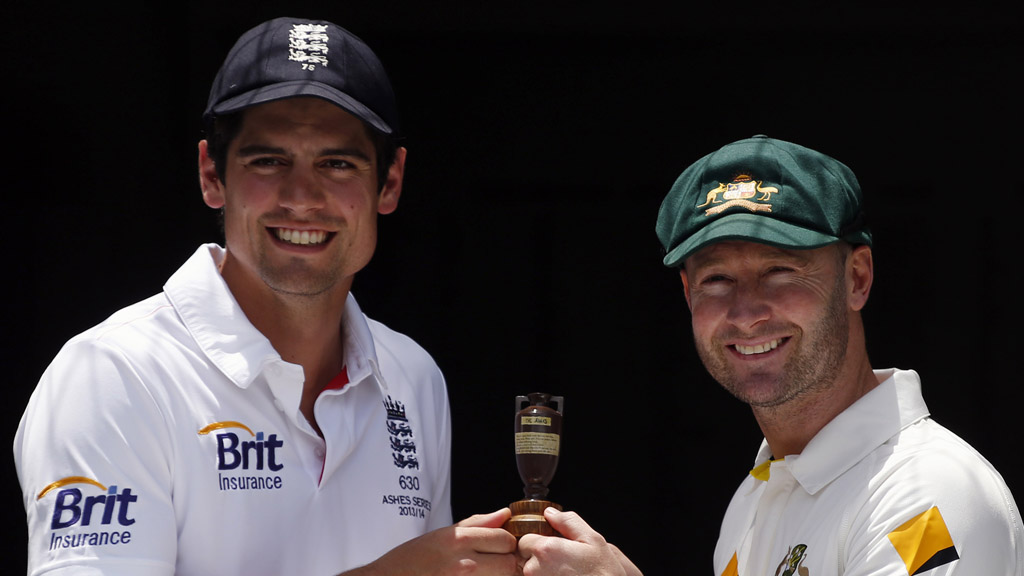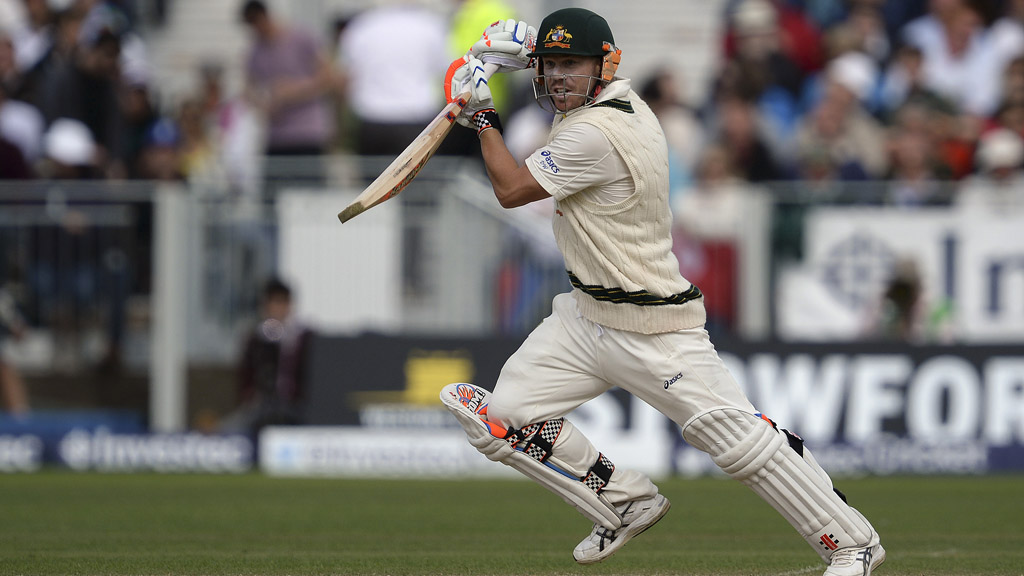Ashes 2013-14: six things to know as the rivalry resumes
At midnight cricket’s oldest and most intense rivalry, between England and Australia, resumed. Kunal Dutta explains what to watch out for as the series unfolds.

1. The Agar conundrum: age and experience
Remember Ashton Agar? Precisely. He was Australia’s endearing 19-year-old who hit a swashbuckling 98 on his debut, breaking several world records, and woke up the following day as a national hero at home. Kevin Rudd, Australia’s then prime minister, even suggested a national day named in his honour.
But the glory was short lived. Agar lasted precisely one more test, where he bowled without bite, and was subsequently dropped for the rest of the series.
Yet Australia could have missed a trick. History shows that investing in players’ futures can reap rewards.
In 2005 Ian Bell was England’s weak batting link in an unquestionably strong line-up. Fast forward eight years. Bell destroyed Australia last summer. His classical batting prowess kept Australia at bay. Similarly, James Anderson and Graeme Swann have grown into two of the world’s most fearsome bowlers, yet had they be “Agared” early in their career, we may never have seen it.
2. DRS is as much an indicator of ego as technique
The controversial use of technology will test the composure of both sides. Just ask Shane Watson, who entertained England last summer with his bizarre relationship with the umpire decision review system (DRS). Time and again the blond batsman showed basic failures to understand what, to most people, seemed fairly simple.
England used DRS technology more effectively. Matt Prior was the key difference. Time and again the wicketkeeper had an instinctive sense of when something should be referred – and his captain, and team, responded accordingly.
In all, though, England got six of their 27 challenges right while Australia got seven of their 29. This winter, teams will be allowed a further review after 80 overs, so there should be even more opportunities to see which side flounders first.
3. Win the toss, don’t lose the game
This equation says it all: last summer England won the toss on all three test matches they won. Coincidence? Hardly.
But winning the toss is nothing if the wrong decision is made. In 2002 Nasser Hussain called correctly and, in one of the worst decisions ever made, put Australia into bat. They went on to bat all day and eventually to crush England 4-1.
the toss on the opening day will tell us where the test match is headed. The first over will give us a sense of what sort of series we are in for. And by the end of the first day, we may even know who will win it. The Ashes can be peculiar like that.
Read more: six things to know before the Ashes start (summer 2013)

4. Temperament, not the ‘spirit of cricket’, will win the day
Handshakes and smiles are part of the so-called “spirit of cricket”, but expect little of that in this upcoming series. Australia’s coach Darren Lehmann fired the first volley during the English summer, calling for Australia’s fans to give Stuart Broad stick this winter. Stuart Broad – who has infuriated Australia with his refusal to walk and his slower approach the game at crucial moments – is sure to receive a hostile reception.
But England’s Barmy Army will be loud and raucous too. Just ask batsman David Warner (pictured above), who became Australia’s pantomime villain all summer after his late-night brawl in a Birmingham bar with Joe Root. Others still carrying scars include Mitchell Johnson, who in 2010/11 fell victim to England supporters’ cries of “He bowls to the left, he bowls to the right, that Mitchell Johnson, his bowling is s***e”.
The series will be fought hard on (and off) the pitch.
5. The beauty of the long (long) form
Just 12 weekends have passed since the last Ashes test. Usually this fixture is every four years. So what’s going on? The reason is to do with a rather dull issue of scheduling. Australia hosts cricket’s 2015 World Cup, so decided to bring forward the Ashes. But the 2012 Olympics thwarted the possibility of moving England’s home series to 2012 to even things out.
Don’t complain, though. The 10-test double-header is turning out to be more fascinating than we first thought, with several closely-fought contests. Though England won the series 3-0 in the summer, many felt Australia were still to hit their stride. This series will give us an even better context of the difference between the two sides.
Ask any cricket purist frustrated in a modern age where Twenty20 and one-day cricket seems to be the norm. A 10-test Ashes series like this is there to be savoured.
6. Farewell, then, the golden age?
It took us nearly two decades to finally win an Ashes series. Now we’re on the verge of winning four in a row. England have never had it so good – and may never so again.
More sentimentally, with the next series in Australia not until 2017, we could well be seeing the last Test appearances down under from giants of the age such as Kevin Pietersen (now 33); Graeme Swann (34), and possibly even James Anderson (31).
English cricket is in a golden age, and tonight’s series may be its pinnacle. Set your alarms. This one is not to be missed.
Read more: England's Ashes cricketers keen to make mark down under
-
Latest news
-
As India goes to the polls in the world’s largest election – what do British-Indians think?6m

-
Tees Valley: Meet the candidates in one of the biggest contests coming up in May’s local elections4m

-
Keir Starmer says public sector reform will be a struggle7m

-
Nicola Sturgeon’s husband Peter Murrell charged with embezzlement of funds from SNP1m

-
Ukraine might finally get $60billion in American weapons and assistance to defend against Russia3m

-




